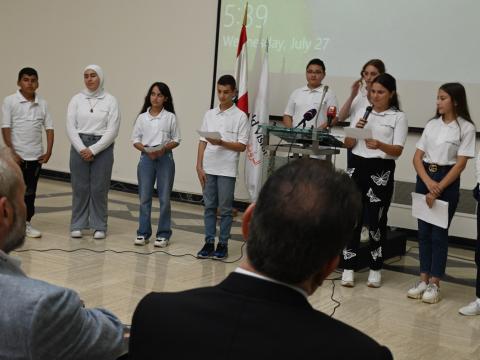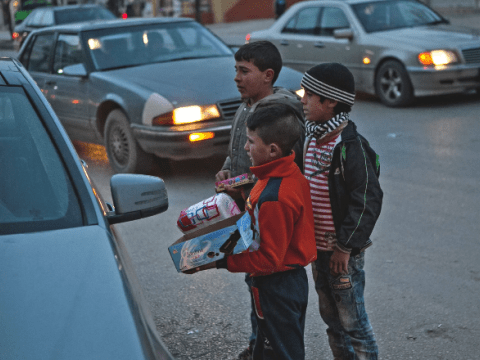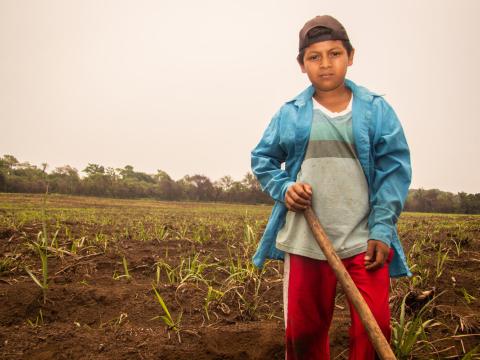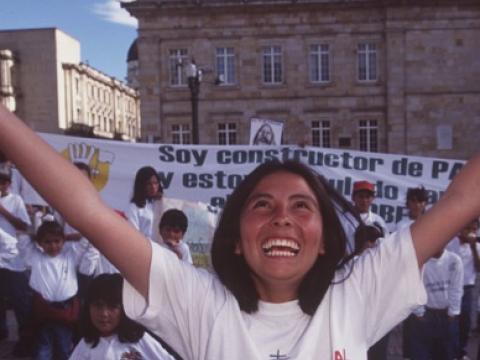
Meeting my child rights and peacebuilding hero did not disappoint
Matt Scott was thrilled to meet up with his hero, a child rights and peace campaigner from Colombia, 21 years after she first inspired his mission at World Vision
In my first job at World Vision in the late 1990s, someone had printed out this picture of a teenaged Colombian peace activist by the name of Mayerly Sanchez. She’s leading a children’s peace march in a conflict-torn part of Colombia. Despite the real dangers and threats she faced, her smile just cuts through.
We knew that she was a World Vision sponsored child. Most of the time, the story ends happily ever after right there: a child in poverty benefits directly from sustainable community development. Strangers in a faraway country help provide funding that helps the sponsored child’s parents get tools to work out of poverty, equip their schools with well-trained teachers their community with improved water, everyone is made more aware of their rights, and much more.
But Mayerly didn’t stop there. Through World Vision, she became aware of her rights, and she knew she had a right to peace. At that time, Colombia’s civil war pitted militia groups and armed forces against each other, with civilians and often children in the way. Mayerly knew in her bones that this was wrong. To make a very long story short, Mayerly and her friends, with some help from World Vision, founded the Colombian Children’s Peace Movement. Even while still a teenager, the movement she founded blossomed across the country and received international acclaim.
A few years later, in May 2002, I met Mayerly for the first time. She spoke to all delegates at the closing session of the UN General Assembly Special Session on Children. As World Vision’s UN representative at that time, I had proposed Mayerly’s name as a speaker to the conference’s child participation working group. It was incredible to meet then 18-year old Mayerly along with two other young delegates World Vision had arranged to travel to New York to participate. She did a fantastic job (you can read her remarks here) and went on to speak at other international conferences on themes of peacebuilding and youth participation. I stayed in touch with her chaperone and mentor, Luz Alcira Granada.
As often happens, the shine wore off a few years later. Peace had not come to Colombia. Life at home was difficult. Mayerly struggled to afford and complete a university degree. She left behind friends and contacts in the peace movement and at World Vision. I too left World Vision for a few years, exhausted by the highs and lows of advocating for humanitarian aid and children’s rights. By 2011, several interesting things happened. Peace had started to come to Colombia. Businesses were flourishing and sometimes employing alumni of the youth peace movement because they had real-world leadership skills. Mayerly was working in the private sector in branding and marketing.
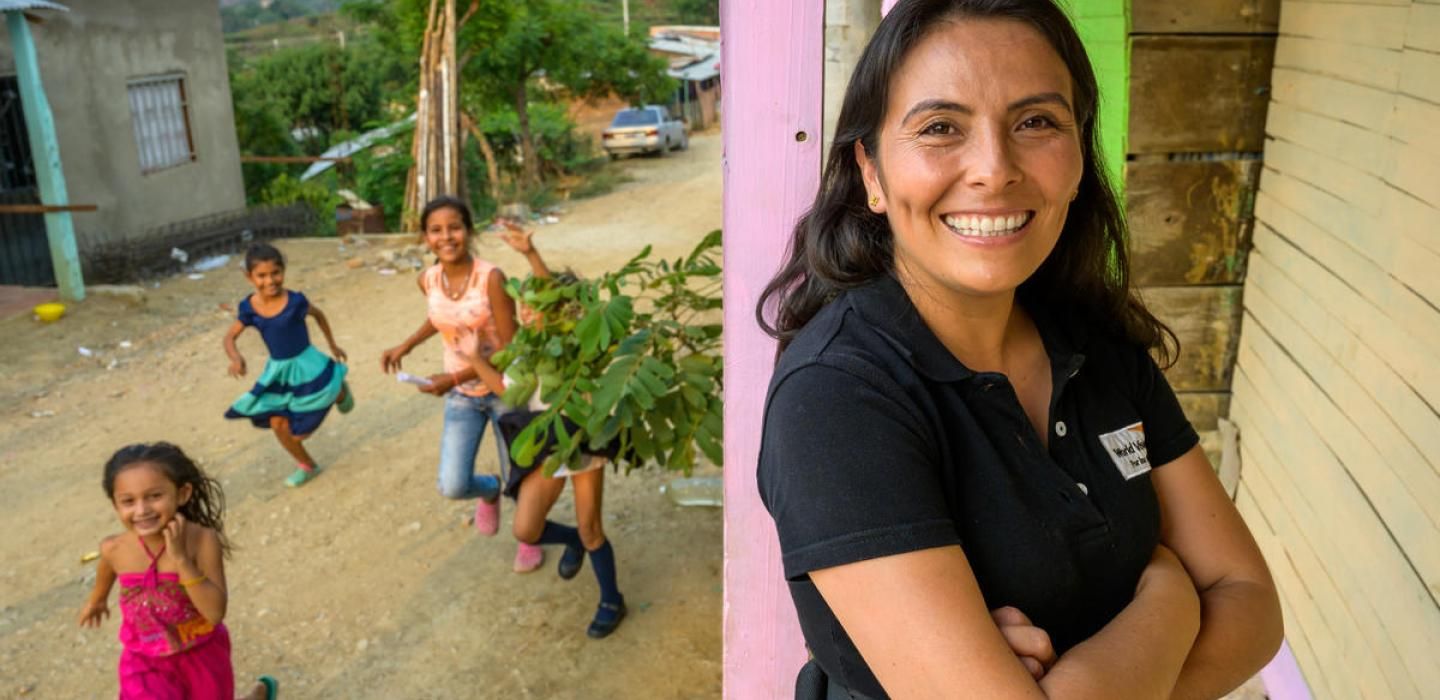
I directed World Vision’s peacebuilding work globally. In that role I drew directly on the experience and wisdom of young peacebuilders like Mayerly (and hundreds more like her). I frequently gave presentations highlighting the substantive contributions of young people to peace processes, and told Mayerly’s story, among others.
A group of youth peace activists approached me and several NGO and UN colleagues pleading for help. They wanted a UN Security Council Resolution guaranteeing a right for young people to participate in peace processes. “We build peace in our communities already, but we struggle to get recognised, supported, and taken seriously.” The older people advised the younger people to reduce their expectations and aim lower. But thankfully they would not take no for an answer, and thankfully the NGO-UN Working Group on Youth, Peace, and Security kept working. For four years we organised conferences, published evidence, and lobbied every diplomat we could in order to get support for a Resolution. We drafted the language of the Resolution and shopped it around.
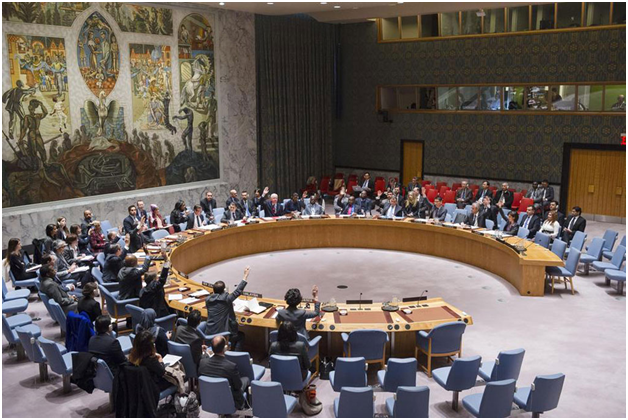
On 9 December 2015, the UN Security Council unanimously passed Resolution 2250. This landmark piece of international law secures the participation of young people in peace processes, prevents targeting and recruitment of young people, and protects their rights in conflict. The Resolution is the direct result of hard work by thousands of youth peacebuilders around the world, including Mayerly. Her mentor back in the day, Luz Alcira Granada, was appointed an expert on the high-level panel established by Resolution 2250.
Eight years nearly to the day, I travelled to Colombia for a World Vision meeting. The speaker on the first morning was Mayerly Sanchez. She now leads Communications for World Vision Colombia and had spent a several years working on the frontlines responding to the humanitarian needs of millions of Venezuelans seeking refuge in Colombia. It was a joy to meet her again. I am such a fanboy, and she is still one of my professional heroes.
They say you should never meet your heroes, but I don’t think you’d agree if you met Mayerly.
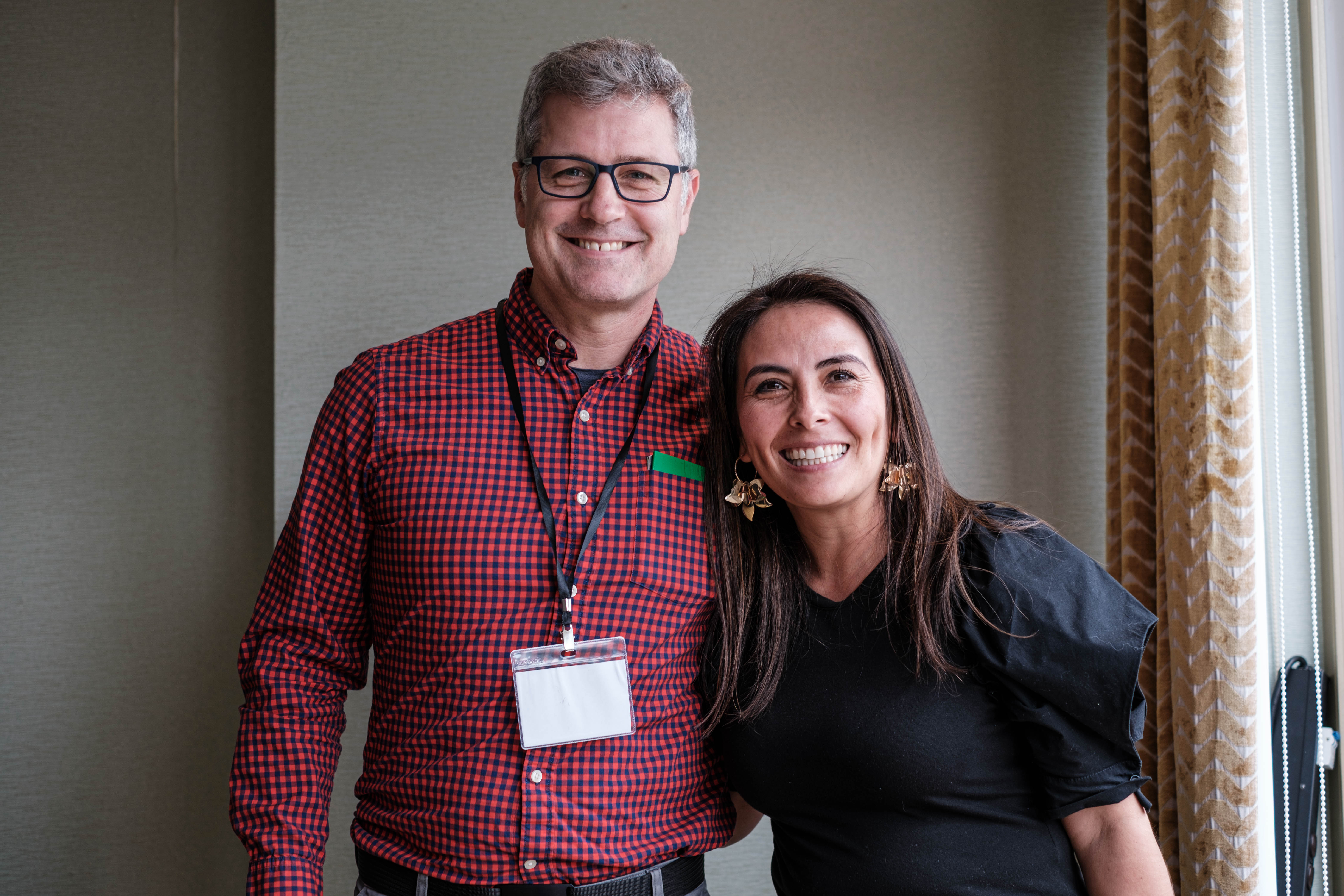
Image: Catherine A. Turcios, World Vision, 2023
Matt Scott is World Vision International's Resource Development Director, Fragile Contexts.
